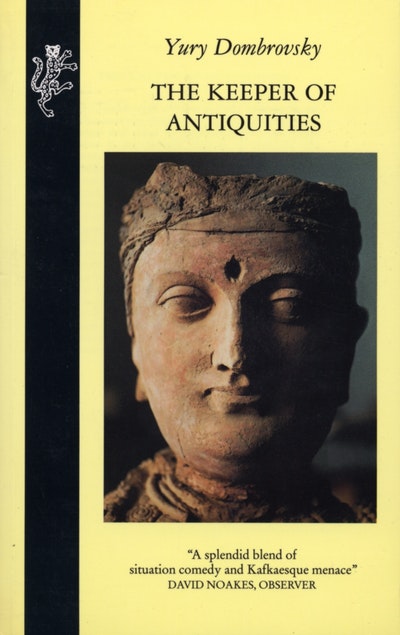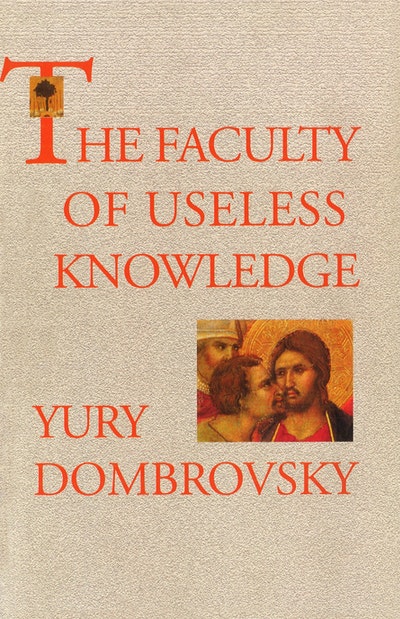Yury Osipovich Dombrovsky (1900-1978) was born in Moscow, the son of a lawyer. He was arrested for the first time in his second year of theatre studies in 1932 and exiled to Alma-Ata in Kazakhstan, where he published his first novel, Derzhavin, about the controversial statesman poet of Catherine the Great's reign. In 1937 he was arrested again and sent to the Kolyma camps in northeast Siberia. He served a reduced sentence owing to ill health and paralysis of the legs and in 1943 was dumped out of the camps; between 1943 and 1949 he lived in Alma-Ata teaching foreign literature. There he completed The Monkey Comes for His Skull, which he had begun in prison hospital, and wrote The Dark Lady. He was again arrested in 1949 in the campaign against "foreign influences and cosmopolitanism" and this time received a ten-year sentence to be served in Siberia. He was eventually released in 1955 and fully rehabilitated in 1956. His novel The Keeper of Antiquities was published to acclaim in Novy mir in 1964, at the end of Khrushchev's brief period of liberalization, but, like his other books, was not reprinted in Russia until the late 1980s. The Faculty of Useless Knowledge, his masterpiece, was written between 1964 and 1975, and first published in Russian in Paris just before he died; it only appeared in Russia in 1988.

